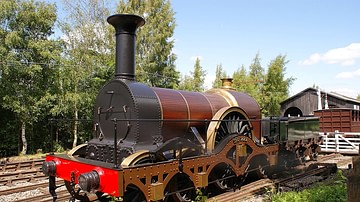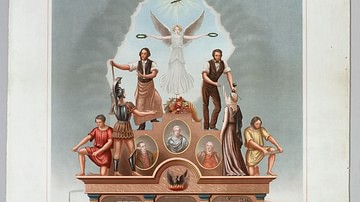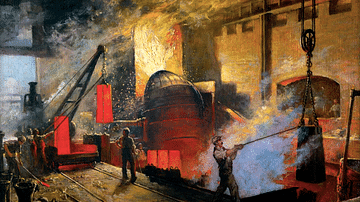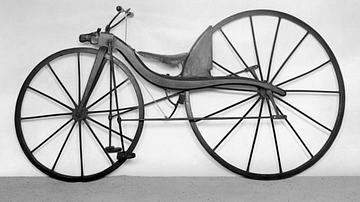Search
Search Results

Article
The Railways in the British Industrial Revolution
The railways were perhaps the most visible element of the Industrial Revolution for many. Trains powered by steam engines carried goods and people faster than ever before and reached new destinations, connecting businesses to new markets...

Article
Trade Unions in the British Industrial Revolution
Trade unions were formed in Britain during the Industrial Revolution (1760-1840) to protect workers from unnecessary risks using dangerous machines, unhealthy working conditions, and excessive hours of work. The trade union movement was vigorously...

Article
The Steel Industry in the British Industrial Revolution
The production of steel during the British Industrial Revolution became cheaper and more reliable thanks to the Bessemer converter, a type of blast furnace that removed undesirable impurities from pig iron. The superior strength and durability...

Image Gallery
A Gallery of 30 Industrial Revolution Inventions
The Industrial Revolution, usually dated from around the mid-18th century to the mid-19th century, brought an extraordinary array of inventions that changed industry and society alike. Most inventions were collaborative affairs where inventors...

Video
Introduction to the British Industrial Revolution
Did you know that the industrial revolution in Britain is referred to as the first industrial revolution, since that is where it happened first? The British Industrial Revolution was a period of both innovative mechanisation and deep social...

Image
The First Industrial Revolution, c. 1760 - 1840
An illustration depicting the First Industrial Revolution - a time of technological and scientific innovation that led to the rapid industrialization and urbanization of Europe and North America's agricultural economies (the term Industrial...

Video
Coal, Steam, & The Industrial Revolution: Crash Course
In which John Green wraps up revolutions month with what is arguably the most revolutionary of modern revolutions, the Industrial Revolution. While very few leaders were beheaded in the course of this one, it changed the lives of more people...

Video
The Industrial Revolution: Crash Course
We've talked about a lot of revolutions in 19th Century Europe, and today we're moving on to a less warlike revolution, the Industrial Revolution. You'll learn about the development of steam power and mechanization, and the labor and social...

Definition
French Revolution
The French Revolution (1789-1799) was a period of major societal and political upheaval in France. It witnessed the collapse of the monarchy, the establishment of the First French Republic, and culminated in the rise of Napoleon Bonaparte...

Definition
Scientific Revolution
The Scientific Revolution (1500-1700), which occurred first in Europe before spreading worldwide, witnessed a new approach to knowledge gathering – the scientific method – which utilised new technologies like the telescope to observe, measure...